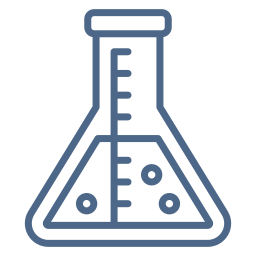Hexabromocyclododecane isomers
Our range of hexabromocyclododecane isomer standards (HBCDs) for your environmental analyses.Discover our native, mass-labelled or deuterated standards as well as our blended solutions.
Trust BCP Instruments for all your analytical standards needs and benefit from the excellence of Wellington Laboratories products in France and Belgium.
Accueil | Etalons analytiques Wellington | HFRs et Dérivés | HBCDs isomères
NOS STANDARDS ANALYTIQUES DE HBCDs
Présentation des HBCDs
Les isomères d’hexabromocyclododécane (HBCDs) constituent des retardateurs de flamme bromés incontournables pour renforcer la résistance au feu de vos matériaux plastiques et textiles. Présentés sous forme de trois stéréoisomères — α-HBCD, β-HBCD et γ-HBCD — ils garantissent une performance thermodynamique optimale.
Pureté et traçabilité certifiées ISO 17025
Nos standards analytiques HBCDs offrent une pureté supérieure (> 98 %) et une traçabilité totale. Chaque lot est accompagné d’un certificat d’analyse détaillant la composition exacte, les concentrations certifiées et les méthodes d’étalonnage utilisées.
Formats et protocoles adaptés
Disponibles dans une large gamme de concentrations prêtes à l’emploi, nos étalons sont optimisés pour vos protocoles LC-MS/MS et GC-ECD. Ils assurent rapidité de mise en œuvre, reproductibilité des résultats et compatibilité avec vos équipements de mesure.
Documentation et délais
Vous bénéficiez de délais de livraison optimisés et d’une documentation complète pour chaque référence, facilitant l’intégration de nos produits à vos procédures internes.
Conformité réglementaire
Conçus pour répondre aux exigences les plus récentes — directives REACH et RoHS incluses — nos HBCDs vous garantissent une parfaite conformité et une sérénité totale lors de vos analyses et de la mise sur le marché de vos produits.
Native hexabromocyclododecane isomers (HBCDs)
13C-labelled hexabromocyclododecane isomer standards
Native enantiomers of hexabromocyclododecane
Deuterated isomers of hexabromocyclododecane
Mixture of native α-, β-, and γ-HBCD
Mixture of 13C-labelled α-, β-, and γ-HBCD
Our commitments
Haute précision
Ces solutions innovantes permettent une identification et une quantification fiables des composés cibles grâce à leur pureté exceptionnelle et à leur compatibilité optimale avec les protocoles analytiques.
Conçus pour répondre aux exigences rigoureuses des laboratoires, nos standards de référence offrent une performance analytique inégalée, assurant ainsi des résultats reproductibles et conformes aux standards réglementaires les plus stricts. Avec les produits Wellington, vous bénéficiez d’outils de référence pour mener des analyses environnementales de pointe.
Fiabilité certifiée
Chaque lot est accompagné d’un certificat d’analyse détaillé, attestant de la qualité et de la pureté des composés.
Livraison rapide
France et Belgique.
Do you have a question? Contact us using the contact form. We will be delighted to advise you.
Individual solutions of hexabromocyclododecane isomers
Isomères HBCDs natifs
Solutions individuelles natives d’isomères d’hexabromocyclododécane
Conditionnement
1.2 mL x 50ug/mL
Solvant
Toluène
Fabricant
Wellington Laboratories
Certification
ISO 9001, ISO/IEC 17025, et ISO 17034
Disponibilité & commande
Nous contacter
| Catalogue No. | Description | CAS |
|---|---|---|
| aHBCD | rac-α-1,2,5,6,9,10-Hexabromocyclododecane | 134237-50-6 |
| bHBCD | rac-β-1,2,5,6,9,10-Hexabromocyclododecane | 134237-51-7 |
| gHBCD | rac-γ-1,2,5,6,9,10-Hexabromocyclododecane | 134237-52-8 |
| dHBCD | δ-1,2,5,6,9,10-Hexabromocyclododecane | 65701-47-5 |
| eHBCD | ε-1,2,5,6,9,10-Hexabromocyclododecane | 4736-49-6 |
| zHBCD | ζ-1,2,5,6,9,10-Hexabromocyclododecane | 878049-06-0 |
| etaHBCD | rac-η-1,2,5,6,9,10-Hexabromocyclododecane | 1392102-29-2 |
| tHBCD | θ-1,2,5,6,9,10-Hexabromocyclododecane | 878049-07-1 |
| iHBCD | rac-ι-1,2,5,6,9,10-Hexabromocyclododecane | 1392102-30-5 |
| kHBCD | rac-κ-1,2,5,6,9,10-Hexabromocyclododecane | 1392102-31-6 |
Énantiomères natifs de l’hexabromo-cyclododécane
Solutions individuelles natives de HBCDs
1.2 mL x 50ug/mL, toluène
| Catalogue No. | Description | CAS |
|---|---|---|
| (+)aHBCD | (+)-α-1S,2S,5R,6S,9S,10R-Hexabromocyclododecane | 138257-19-9 |
| (-)aHBCD | (-)-α-1R,2R,5S,6R,9R,10S-Hexabromocyclododecane | 678970-15-5 |
| (+)gHBCD | (+)-γ-1R,2R,5R,6S,9S,10R-Hexabromocyclododecane | 678970-17-7 |
| (-)gHBCD | (-)-γ-1S,2S,5S,6R,9R,10S-Hexabromocyclododecane | 169102-57-2 |
Isomères d’hexabromocyclododécane marqués
Solutions individuelles marquées 13C de HBCDs
1.2 mL x 50ug/mL, toluène
| Catalogue No. | Description | CAS |
|---|---|---|
| MaHBCD | rac-α-1,2,5,6,9,10-Hexabromo(13C12)cyclododecane | 870247-98-6 |
| MbHBCD | rac-β-1,2,5,6,9,10-Hexabromo(13C12)cyclododecane | 870248-00-3 |
| MgHBCD | rac-γ-1,2,5,6,9,10-Hexabromo(13C12)cyclododecane | 676552-82-2 |
Isomères d’hexabromocyclododécane deutérés
Solutions individuelles deutérées D18 de HBCDs
1.2 mL x 50ug/mL, toluène
| Catalogue No. | Description | CAS |
|---|---|---|
| DaHBCD | d18-rac-α-1,2,5,6,9,10-Hexabromocyclododecane | 870247-99-7 |
| DbHBCD | d18-rac-β-1,2,5,6,9,10-Hexabromocyclododecane | 870248-01-4 |
| DgHBCD | d18-rac-γ-1,2,5,6,9,10-Hexabromocyclododecane | 676552-83-3 |
Hexabromocyclododecane isomers: solutions/mixtures
Mélange HBCD-MXA
Mélange de α-, β-, et γ-HBCD natifs
1.2 mL, toluène
HBCD-MXA is a solution/mixture of hexabromocyclododecane isomers (HBCDs) listed below.
The chemical purity of each of the HBCDs is greater than 98%,
List of compounds
| Acronym | Compound | CAS # | Concentration (µg/mL) |
|---|---|---|---|
| aHBCD | rac-α-1,2,5,6,9,10-Hexabromocyclododecane | 134237-50-6 | 10 |
| bHBCD | rac-β-1,2,5,6,9,10-Hexabromocyclododecane | 134237-51-7 | 10 |
| gHBCD | rac-γ-1,2,5,6,9,10-Hexabromocyclododecane | 134237-52-8 | 10 |
Mélange MHBCD-MXA
Mélange de α-, β-, et γ-HBCD marqués 13C
1.2 mL, toluène
MHBCD-MXA is a solution/mixture of 13C12-labelled hexabromocyclododecanes (HBCDs) isomers listed below.
The chemical purity of each of the 13C12-HBCDs is greater than 98%, while the isotopic purity is greater than or equal to 99%.
List of compounds
| Acronym | Compound | Concentration (µg/mL) |
|---|---|---|
| MaHBCD | rac-α-1,2,5,6,9,10-Hexabromo(13C12)cyclododecane | 10 |
| MbHBCD | rac-β-1,2,5,6,9,10-Hexabromo(13C12)cyclododecane | 10 |
| MgHBCD | rac-γ-1,2,5,6,9,10-Hexabromo(13C12)cyclododecane | 10 |
Do you have a question? Contact us using the contact form. We will be delighted to advise you.

PFAS, per- polyfluoroalkyl Substances

Halogenated flame retardants, HFRs and other compounds

Polychlorinated biphenyls, PCBs

Polybrominated diphenyl ethers, PBDEs Polybrominated biphenyls, PBBs

Dioxins, Furans, PCDDs, PCDFs

Organochlorine Pesticides, OCP

Certified reference materials

Other reagents
Find out more about Hexabromocyclododecanes
Hexabromocyclododecanes (HBCDs) are brominated flame retardants widely used in various consumer products, such as building materials, textiles and electronic equipment. HBCDs exist in three main diastereomeric forms: α-HBCD, β-HBCD and γ-HBCD, the latter being the most abundant in commercial products.
Environmental and health problems
HBCDs are of concern because of their persistence in the environment, their ability to bioaccumulate in the food chain and their potential for toxicity to aquatic organisms. They may also present risks to human health, including potential effects on reproduction, development and the neurological system.
Regulations and control measures
As a result of these concerns, HBCDs were included in the Stockholm Convention on Persistent Organic Pollutants in 2013.
In France, regulations are strict and HBCDs are subject to rigorous standards to limit their use and environmental impact.
In Belgium, European and Belgian regulations require every company to take measures to avoid or reduce workers’ exposure to hazardous chemicals, including HBCDs.
Do you need laboratory equipment and/or consumables?
Feel free to contact us at any time.
